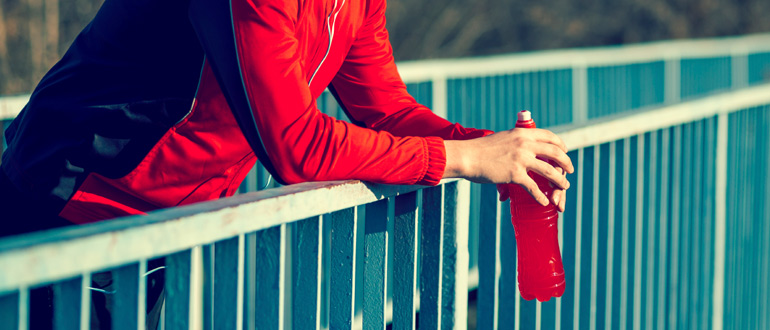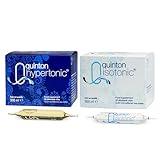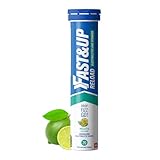
Rehydration and Recovery for Active Lifestyles
Sports drinks are specifically designed to support people who engage in physical activity, especially during intense or prolonged exercise. When we sweat, we don’t just lose water – we also lose important minerals known as electrolytes, as well as stored energy. Sports drinks aim to replenish these losses and help the body recover more effectively.
Sweating is the body’s natural way of regulating temperature, especially during exercise, where maintaining a core body temperature of around 37°C is crucial for performance and safety. Without proper hydration and electrolyte balance, physical performance can decline, and recovery can be delayed.
What Do Sports Drinks Contain?
Most sports drinks include a combination of:
- Water – to rehydrate the body
- Electrolytes – such as sodium, potassium, magnesium, calcium, and chloride, which are vital for fluid balance, muscle function, and nerve signalling
- Carbohydrates – typically in the form of sugar or glucose, to provide quick energy and help restore depleted glycogen stores in muscles
Types of sports drinks
There are three main categories of sports drinks, each designed for different needs depending on the duration and intensity of exercise:
1. Isotonic Drinks
These contain a similar concentration of sugar and electrolytes to that found in the human body. They are effective at quickly replacing fluids and offering a moderate energy boost.
Best for: Most sports and fitness activities, including running, football, cycling, and gym workouts.
Example use: During or after a 60–90 minute workout to help rehydrate and refuel.
2. Hypertonic Drinks
These drinks have a higher concentration of sugar and electrolytes than the body’s own fluids. They are primarily used to supplement energy intake rather than for hydration.
Best for: Ultra-endurance athletes or those recovering from very intense sessions where energy stores are heavily depleted.
Note: These drinks should ideally be taken alongside additional water or isotonic drinks to maintain proper hydration.
3. Hypotonic Drinks
Hypotonic drinks have a lower concentration of sugar and electrolytes than the body’s fluids. Their main function is to rapidly replace lost fluids without providing much additional energy.
Best for: Athletes who require quick hydration without extra carbohydrates, such as gymnasts or dancers.
Example use: Light to moderate workouts where fluid loss is high but energy demands are lower.
Hydration and the Risk of Overhydration
While staying hydrated is essential, it’s also possible to overdo it. Drinking too much water without replacing electrolytes can lead to a rare but serious condition called water intoxication (or hyponatraemia). This occurs when the body’s sodium levels become dangerously diluted.
Symptoms may include:
- Headache and confusion
- Nausea or vomiting
- Muscle cramps
- In severe cases – seizures, coma, or even death
This highlights the importance of balanced rehydration, particularly after long or sweaty workouts. Sports drinks can help address this by restoring electrolytes along with fluids.
Do sports drinks improve performance?
There has been plenty of scientific debate on the supposed benefits sports drinks bring, such as better performances and better recovery. Experts from the University of Oxford claimed that there is insufficient evidence to support manufacturers’ claims on the benefits provided by sports drinks.
There is no definite proof that sports drinks are able to improve your performances more than just drinking water, but it is known that they can help replace lost electrolytes which water fails to do.
Do Sports Drinks Improve Performance
There’s been some debate about the effectiveness of sports drinks. While some brands claim they enhance performance and speed up recovery, the scientific evidence is mixed.
Studies suggest that for prolonged or high-intensity activities (lasting longer than an hour), sports drinks can help maintain endurance and delay fatigue by replenishing fluids and providing energy.
However, for shorter or less intense sessions, water is often enough for hydration, especially if you eat a balanced post-workout meal.
Experts, including researchers from the University of Oxford, have pointed out that many performance claims made by manufacturers are not backed by robust evidence. That said, sports drinks do offer practical benefits when used appropriately -especially for those training regularly, or in hot and humid conditions.
Final Thoughts
Sports drinks can be a useful tool for active individuals, especially during long or intense workouts where hydration and energy levels are tested. Understanding the different types, and when to use the – an help you make informed decisions based on your training goals.
For everyday workouts, isotonic drinks or plain water may be all you need.
For endurance events, consider hypertonic options paired with extra fluids.
For quick hydration, hypotonic drinks can be ideal.
As with any nutrition choice, moderation is key, and if you’re unsure whether sports drinks are right for you, especially if you have medical conditions or dietary concerns, speak to a healthcare professional or sports nutritionist.







